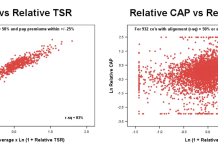Tenants will be protected from unfair letting fees with most seeing tenancy deposits capped at 5 weeks’ rent thanks to a new law which has now come into effect (1 June 2019)
Unexpected fees and high deposits can make properties harder for people to afford and are often not clearly explained upfront – leaving many prospective tenants unaware of the true costs of renting a property.
The Tenant Fees Act now puts an end to these unnecessary fees imposed by landlords and agents. It is expected to save tenants across England at least £240 million a year, or up to £70 per household.
The Act also caps the tenancy deposits that renters pay at the start of their tenancy at the equivalent of 5 weeks’ rent. This gives people the assurance that, legally, they cannot be expected to pay more than this (where the total annual rent is less than £50,000) to secure a property.
Communities Secretary Rt Hon James Brokenshire MP said: “From today (1 June 2019), tenants will no longer be stung by unreasonable costs from agents or landlords, thanks to the implementation of the Tenant Fees Act.
“This Act bans unnecessary letting fees and caps the majority of deposits at 5 weeks’ rent – helping renters keep more of their hard-earned cash. Alongside our recent announcement to scrap no-fault evictions in the sector, this will make renting fairer and more transparent – creating a housing market that works for everyone.
This Act also puts a stop to tenants being charged hundreds of pounds for admin or renewal fees. In addition, under the Act’s default fee provision, landlords and agents are only able to recover reasonably incurred costs from tenants for lost keys or other security devices and must provide evidence of these costs before they can impose any charges. They may also charge a default fee in relation to late rent.
The Act ensures that tenants who have been charged unfair fees can get their money back. Trading Standards or the First-tier Tribunal can require landlords and agents to pay back any prohibited payment or any unlawfully retained holding deposit within 7 to 14 days.
Taken together, these provisions help reduce the costs that tenants can face at the outset of, during, the renewal of and termination of a tenancy.
The Act is part of a wider package of reforms by the government aimed at rebalancing the relationship between tenants and landlords to deliver a fairer, better quality and more affordable private rental market.
In April this year, we announced plans to stop private landlords from evicting tenants from their homes at short notice and without good reason. We are due to consult on new legislation to abolish Section 21 evictions, bringing an end to private landlords uprooting tenants from their homes with as little as 8 weeks’ notice.
In addition to this, we have introduced a range of powers for local authorities to enable them to crack down on the small minority of rogue landlords and agents who let unfit properties. This includes fixed financial penalties of up to £30,000 and banning orders – possibly for life – for the most serious offenders.
Ministers have also extended mandatory licensing for Houses in Multiple Occupation to improve living conditions of tenants in shared homes and tightened up rules on smoke and carbon monoxide detectors. Private tenants can also apply for a refund of up to 12 months’ rent if their landlord does not deal with health and safety hazards in their home.
Other government steps to reform and improve renting include:
- A national database of rogue landlords and agents to keep track of those that have been banned from letting
- A review to assess how well the Housing Health and Safety Rating System (HHSRS) – the system used by local authorities to assess health and safety in residential properties – works in practice and ensure it is fit for purpose
- Mandatory client money protection – by which rental money held by letting agents is safeguarded against theft and fraud
- Proposals for mandatory redress scheme membership for landlords
- Proposals for an independent regulator to oversee property agents, setting standards and maintaining minimum qualifications
- New, mandatory 5-yearly electrical installation safety inspections
- Considering the case for a specialist housing court to provide greater access to justice for landlords and tenants in property disputes
These measures are all part of ongoing action by the government to protect tenants and drive up standards in the private rented sector – helping make a housing market that is fairer and works for everyone











